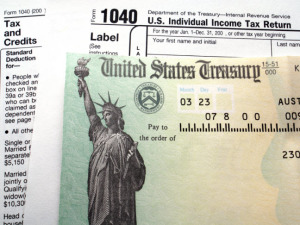Dear Liz: I’ll be retiring shortly. After 30 years of public service, I’m fortunate to have a generous pension. I’ll be paying off all my debts upon retirement, including my mortgage. I have a deferred compensation account that I will leave untouched until I’m required to take disbursements at 70 1/2 (15 years from now). Until then I will have disposable income but no significant tax deductions. Short of investing on my own in a brokerage account (and perhaps incurring capital gains taxes), are there any other investment vehicles that perhaps would be tax friendlier?
Answer: A variable annuity could provide tax deferral, but any gains you take out would be subject to income tax rates, which are typically higher than capital gains rates. (Annuities held within IRAs are subject to required minimum distributions starting after age 70 1/2. Those held outside of retirement funds will be annuitized, or paid out, starting at the date specified in the annuity contract.) Also, annuities often have high fees, so you’d need to shop carefully and understand how the surrender charges work.
Many advisors would recommend investing on your own instead and holding those investments at least a year to qualify for lower capital gains rates. This approach is particularly good for any funds you may want to leave your heirs, since assets in a brokerage account would get a “step up” in tax basis that could eliminate capital gains taxes for those heirs. Annuities don’t receive that step-up in basis.
You also shouldn’t assume that waiting to take required minimum distributions is the most tax-effective strategy. The typical advice is to put off tapping retirement funds as long as possible, but some retirees find their required minimum distributions push them into higher tax brackets. You may be better off taking distributions earlier — just enough to “fill out” your current tax bracket, rather than pushing you into a higher one.
 Today’s top story: Managing your 401(k) in uncertain times. Also in the news: How the Alternative Minimum Tax works, how owning or selling a home affects your taxes, and the 10 biggest tax havens on earth.
Today’s top story: Managing your 401(k) in uncertain times. Also in the news: How the Alternative Minimum Tax works, how owning or selling a home affects your taxes, and the 10 biggest tax havens on earth. Today’s top story: 5 essential investing moves for Millennials. Also in the news: Why your tax refund is ideal for paying credit card debt, how to make sure retirement isn’t a drag, and why you need to do your homework before meeting with a financial advisor.
Today’s top story: 5 essential investing moves for Millennials. Also in the news: Why your tax refund is ideal for paying credit card debt, how to make sure retirement isn’t a drag, and why you need to do your homework before meeting with a financial advisor. Today’s top story: The student loan tip that saves you money year after year. Also in the news: Overlooked small business tax deductions, when you need a cashier’s check and how to get one, and why Americans are drastically under-saved for retirement.
Today’s top story: The student loan tip that saves you money year after year. Also in the news: Overlooked small business tax deductions, when you need a cashier’s check and how to get one, and why Americans are drastically under-saved for retirement.